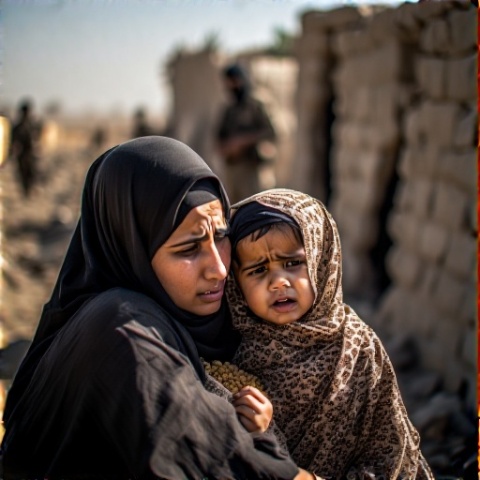The legacy of Prophet Muhammad (PBUH) is a beacon of mercy, compassion, and moral excellence. His life is an enduring testament to the transformative power of kindness, not only for his companions (RA) but for all of humanity. In a world often marked by division and hardship, the stories of his compassion offer both inspiration and practical guidance for building character and nurturing empathy.
The Centrality of Compassion in Islamic Teachings
Compassion is not just a virtue in Islam-it is a defining attribute of Allah (SWT) and a core principle of the faith. The Quran opens with the invocation:
“In the name of Allah, the Most Gracious, the Most Merciful.”
Allah (SWT) describes the Prophet Muhammad (PBUH) as a mercy to all creation:
“We have not sent you, [O Muhammad], except as a mercy to the worlds.”
(Quran 21:107)
This divine endorsement establishes compassion as both a spiritual and practical imperative. The Prophet’s (PBUH) life, filled with acts of kindness toward friend and foe, young and old, Muslim and non-Muslim, reflects the highest ideals of Islamic character.
The Prophet’s (PBUH) Compassion: Stories and Lessons
Compassion in Everyday Interactions
The Prophet Muhammad (PBUH) was known for his extraordinary generosity and selflessness. Abdullah ibn Abbas (RA) narrated:
“The Holy Prophet (PBUH) was the most generous of all people.”
(Sahih al-Bukhari, Kitab al-Manaqib, Hadith 3554)
His generosity was not limited to material gifts but extended to his time, patience, and concern for others’ well-being. On one occasion, he purchased a shirt for himself but, upon seeing an elderly man in need, gave the shirt away and used the remaining money to buy another for himself. Such selfless acts exemplified the Quranic principle:
“Never will you attain righteousness until you spend [in the way of Allah] from that which you love.”
(Quran 3:92)
Mercy to All Creation
The Prophet’s (PBUH) compassion extended beyond humans to animals and the environment. He taught that every act of kindness is an act of charity, saying:
“Whoever is not merciful to others will not be treated mercifully.”
(Sahih al-Bukhari and Sahih Muslim)
He admonished his companions (RA) to treat animals gently and even forgave those who had wronged him, hoping for their eventual guidance rather than their destruction.
When the people of Ta’if rejected and abused him, the Angel Jibril (AS) offered to crush them between the mountains. The Prophet (PBUH) refused, saying:
“I hope that Allah will bring forth from their descendants those who will worship Allah alone and not associate anything with Him.”
(Sahih al-Bukhari and Sahih Muslim)
This remarkable restraint and hope for others’ redemption is a hallmark of prophetic character.
Compassion Toward Children
The Prophet’s (PBUH) love for children was legendary. Anas ibn Malik (RA) recalled:
“I never saw anyone who was more compassionate towards children than Allah’s Messenger (PBUH).”
(Sahih Muslim)
He played with children, greeted them affectionately, and showed patience with their antics. When his grandson Al-Hasan ibn Ali (RA) sat on his lap, he prayed:
“O Allah! Please be merciful to them, as I am merciful to them.”
(Sahih al-Bukhari)
When a companion (RA) remarked that he had never kissed his own children, the Prophet (PBUH) replied:
“He who has no compassion will receive none.”
(Sahih al-Bukhari and Sahih Muslim)
Even during prayer, if he heard a child crying, he would shorten the prayer out of consideration for the mother’s distress.
Mercy to the Vulnerable and Marginalized
The Prophet (PBUH) was a champion of the weak, the poor, and the oppressed. He said:
“The most beloved people to Allah are those who are most beneficial to people. The most beloved deed to Allah is to make a Muslim happy, or to remove one of his troubles, or to forgive his debt, or to feed his hunger.”
(Mu’jam al-Tabarani al-Kabir, authenticated by Al-Albani)
He regularly visited the sick, comforted the grieving, and advocated for the rights of women, orphans, and slaves. His kindness was not transactional but unconditional, rooted in a deep sense of empathy and justice.
Compassion in Leadership and Justice
Even as a leader and judge, the Prophet (PBUH) balanced justice with mercy. He discouraged harshness, saying:
“Verily Allah is kind and He loves kindness and confers upon kindness which He does not confer upon severity and does not confer upon anything else.”
(Sahih Muslim, Hadith 2593)
He forgave those who wronged him personally and encouraged his followers to do the same, provided it did not compromise justice or the rights of others. His approach was nuanced, recognizing that true strength lies in forgiveness and understanding.
Compassion in Times of Conflict
The Prophet’s (PBUH) compassion was perhaps most evident during times of conflict. After the conquest of Makkah, he forgave his former persecutors, declaring:
“No blame will there be upon you today. Allah will forgive you; and He is the most merciful of the merciful.”
(Quran 12:92)
This act of magnanimity transformed enemies into allies and set a precedent for reconciliation and peace.
Contemporary Relevance: Applying the Prophet’s (PBUH) Compassion Today
The Prophet’s (PBUH) compassion is not confined to history; it is a living example for Muslims navigating the complexities of modern life. In a world marked by conflict, inequality, and social fragmentation, his teachings offer practical guidance:
- Building Empathy: By reflecting on the Prophet’s (PBUH) empathy, Muslims can cultivate deeper understanding and patience in their relationships.
- Promoting Social Justice: His advocacy for the marginalized inspires efforts to address poverty, discrimination, and injustice.
- Fostering Community: The Prophet’s (PBUH) kindness toward all, regardless of background, encourages inclusivity and unity.
- Parenting and Education: His gentleness with children sets a standard for nurturing future generations with love and respect.
- Conflict Resolution: His example of forgiveness and reconciliation offers a blueprint for resolving disputes and healing divisions.
Lessons for Character Building
The stories of the Prophet’s (PBUH) compassion are not mere anecdotes; they are lessons in character development. By embodying his qualities-generosity, patience, forgiveness, and empathy-Muslims can strive to become better individuals and contributors to society. The Prophet (PBUH) said:
“You see the believers as regards their being merciful among themselves and showing love among themselves and being kind, resembling one body, so that, if any part of the body is not well, the whole body shares the sleeplessness (insomnia) and fever with it.”
(Sahih al-Bukhari, Hadith 6011)
This metaphor of unity and shared compassion is a powerful reminder of the social and spiritual bonds that define the Muslim community.
Conclusion
The life of Prophet Muhammad (PBUH) is a radiant example of compassion in action. His kindness was not limited by circumstance or recipient; it was a universal principle rooted in faith and love for Allah (SWT). As we reflect on his stories, let us ask ourselves: How can we embody his compassion in our daily lives? How can we extend mercy to those around us, regardless of their status or beliefs?
The Quran reminds us:
“There has certainly been for you in the Messenger of Allah an excellent pattern…”
(Quran 33:21)
Let us strive to follow this pattern, building our character through acts of kindness, patience, and empathy. In doing so, we not only honor the legacy of the Prophet (PBUH) but also contribute to a more compassionate and just world. May Allah (SWT) grant us the strength to walk in his footsteps and the wisdom to spread mercy wherever we go.







